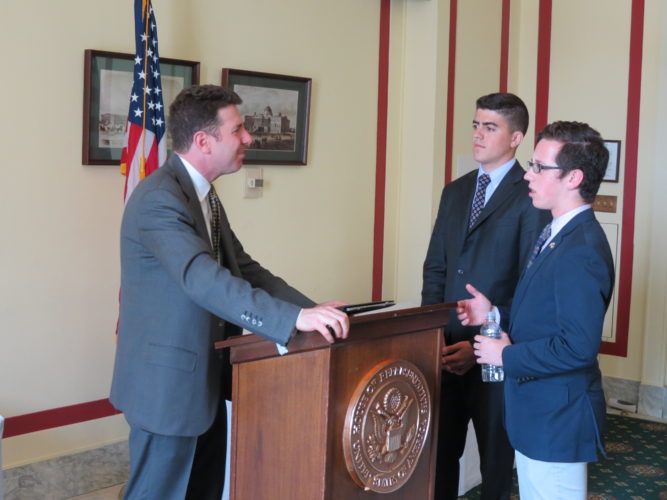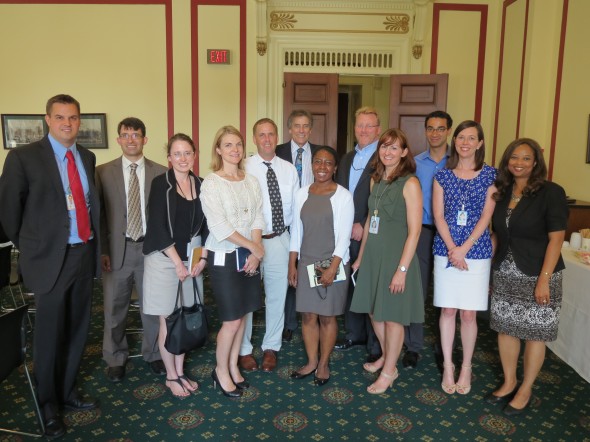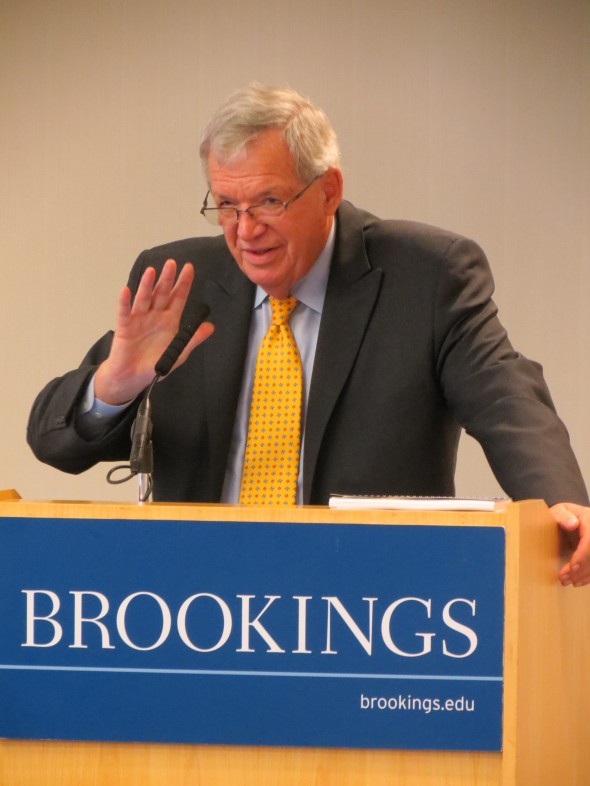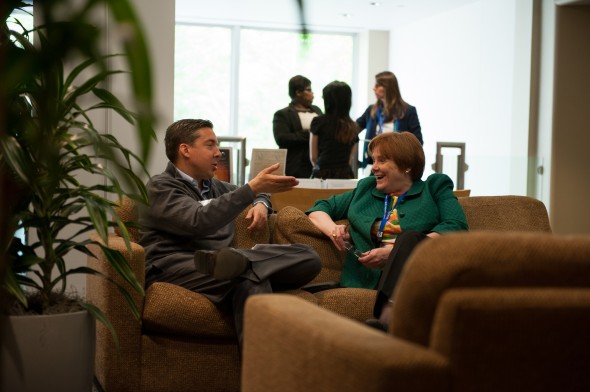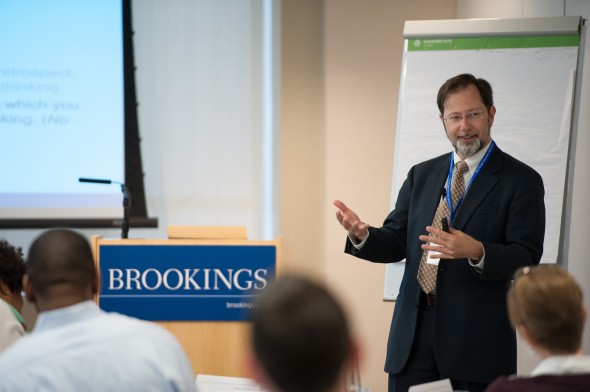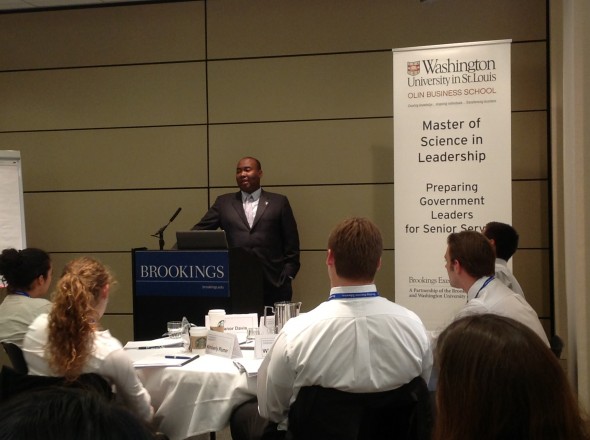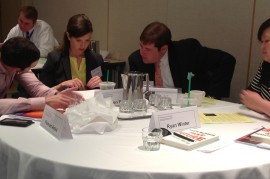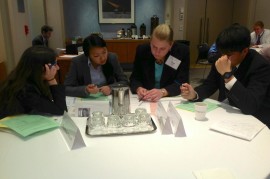Dan Byman, Senior Fellow in Foreign Policy of the Saban Center for Middle East Policy at the Brookings Institution discussed Middle East security with Brookings Executive Education (BEE) Legis Congressional Fellows and Capitol Hill staffers recently on a hot D.C. afternoon in the Gold Room of the Rayburn House Office Building.
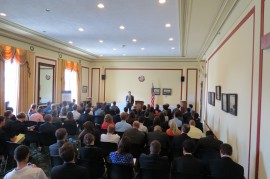
Dan Byman speaks to over 100 hill staffers and Legis Congressional Fellows
Byman’s research focuses on counterterrorism and Middle East security. He served as a staff member on the 9/11 Commission and worked for the U.S. government.
Over 100 people listened as Dan Byman spoke on a wide range of topics. Byman’s depth and breadth of knowledge of Middle East security issues were demonstrated as he answered audience questions.
Byman was recently called to testify at the Joint Subcommittee Hearing (Subcommittee on Terrorism, Nonproliferation, and Trade, Subcommittee on the Middle East and North Africa) regarding the subject “The Terrorist Threat in North Africa: Before and After Benghazi”. Watch videos of the hearing by the House Committee on Foreign Affairs.
The Legis Congressional Fellowship is an extended opportunity for public or private sector managers to acquire an in-depth understanding of the legislative process.
Fellows learn to interact more effectively with Congress and gain an insider’s knowledge of congressional affairs and public policy.
BEE regularly coordinates events for current and alumni Legis Congressional Fellows to gather, connect, and learn.
Byman’s most recent published pieces include: Around the Halls: U.S. Foreign Policy and Syria and Why Drones Work: The Case for Washington’s Weapon of Choice.


